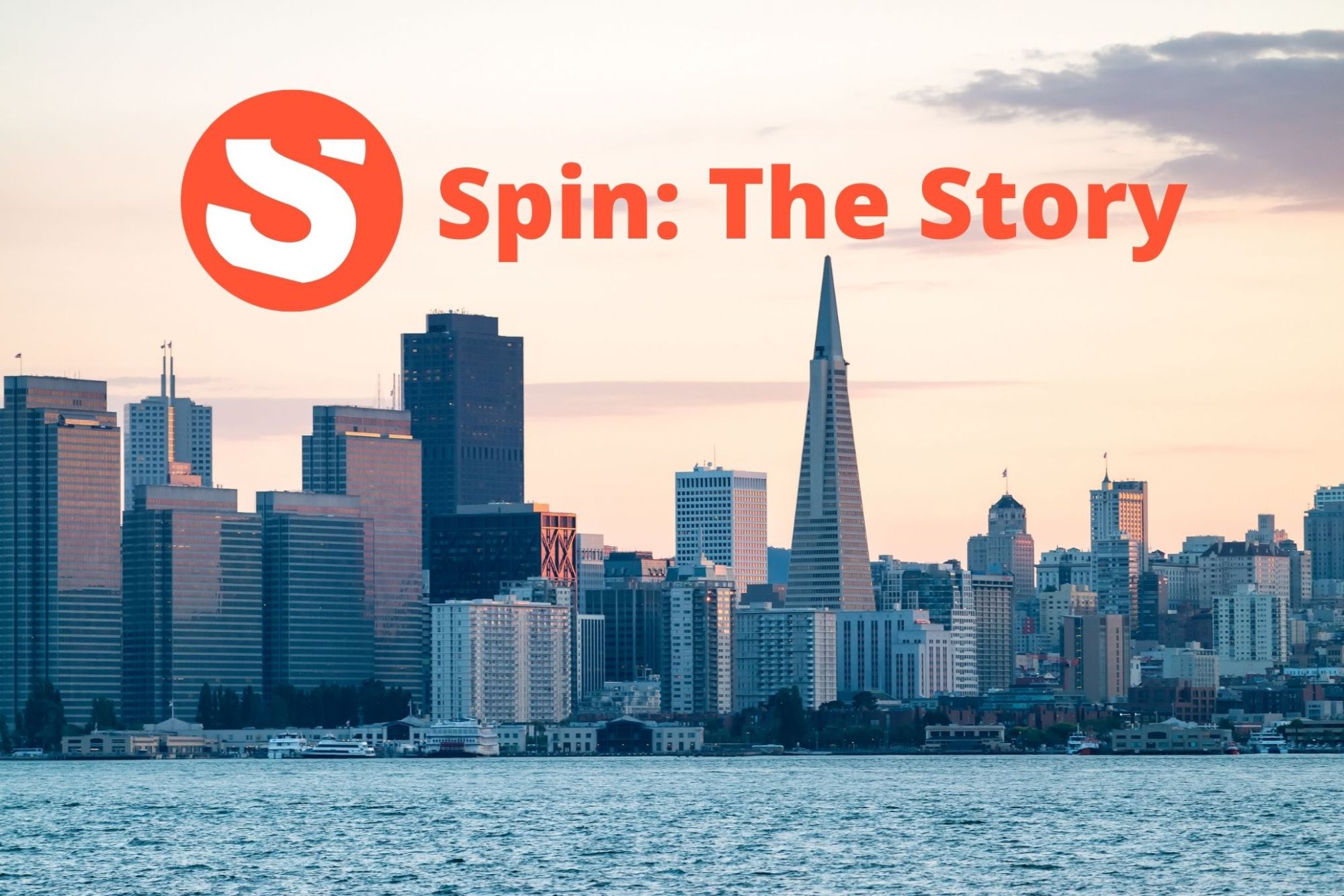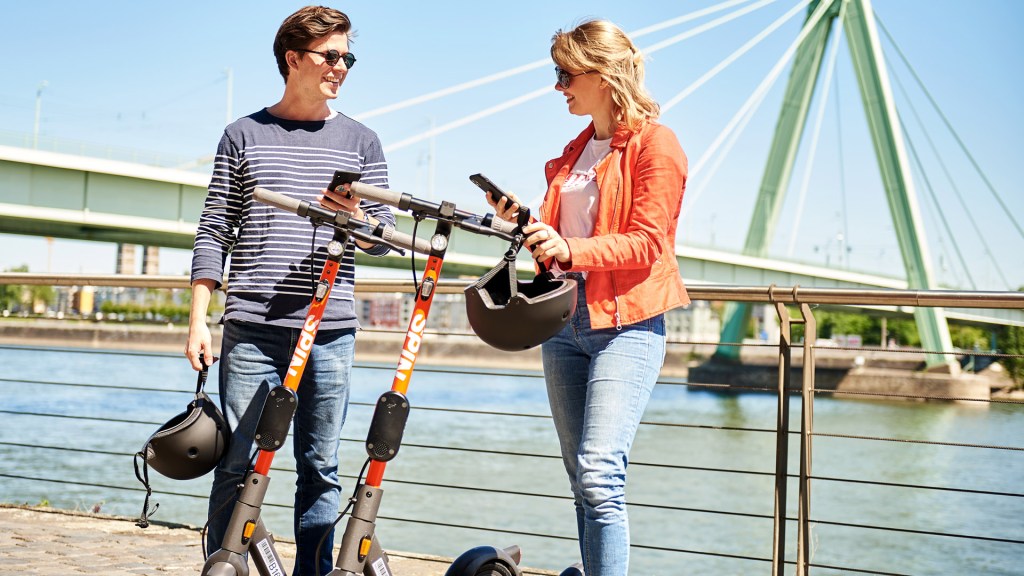Spin: The Story

In the world of E-Scooters, there are big names and there are small names. Huge, multi-billion companies battling it out with living room startups. Spin is a little bit of both.
A startup, originating in San Francisco, but with the backing of one of the largest automobile companies in the world; Ford Motor Company.
As a result, Spin has developed with the ethos and attitude one would expect from a startup, but with the punching power of an established, ambitious and wealthy company. The combination is an interesting mix, which can be seen across North America as well as Europe. Recently, they have taken a step into the United Kingdom, by launching a trial in Milton Keynes. If all goes well, expect to see them on streets throughout the U.K. as we move into 2021.
This is their story…
The Beginning
Spin was founded in 2017 in San Francisco. Their original concept involved launching a dockless bicycle-sharing system controlled by a mobile app. The key concept was that the bikes were not required to be picked up from, or dropped off at, a permanent docking station. At the time, this was a model that had been executed successfully in Europe and China. However, it was a relatively new idea for much of the United States.
Spin first launched their dockless bicycles in Seattle. They originally debuted with 500 bicycles and exceeded 5,000 rides in its first week! Seattle had been taken by storm.
And it is easy to see why. The dockless sharing model comes with many advantages. It is seen as more convenient for the rider and less expensive for the city to roll out. However, it also comes with certain disadvantages. Problems that Spin would encounter along it’s road to success.
Initial problems:

Dockless bicycles have proven to be a decisive issue in many cities. You either love the concept or hate it.
Many believe it is the future of micro-mobility, the benefits of convenience drastically out-weighing the negatives. However, those negatives can cause reluctance amongst more conservative city planner and mayors.
To give you some examples of this reservation in action. Spin’s initial steps into New York City were met with hesitation. A planned launch in Rockaway, Queens, was halted by Mayor Bill de Blasio and the Department of Transportation, with a spokesperson stating “this can’t be the Wild West, with ad hoc installations that haven’t received city approval.”
The “Wild West” metaphor is actually fairly good when looking at dockless systems in some cities around the world.
The Move to E-Scooters
Nevertheless, Spin powered on. In 2018 they decided to introduce dockless E-Scooters as well as bicycles to their arsenal. However, some of their early projects were met with similar scepticism as in New York City.
They initially launched E-Scooters in San Francisco and were met with a mixed reaction.
A local newspaper describing the moment several E-Scooters were seized by authorities: ”San Francisco’s skirmish over scooters escalated Friday as the city’s Public Works Department seized several dozen of the two-wheelers it said were blocking sidewalks and fined the companies that own them in response to public protests.”
Any launch that can be described as a “skirmish” hardly screams success.
A launch of E-Scooters in Austin, Texas, was suspended within a day of launch due to a dispute with the city government over regulations.
In September 2018, when Spin’s bicycle-sharing contract with Seattle was up for renewal, the company ceased operations instead. They announced that they were shifting their priorities to focus on E-Scooters. However, giving up such a large contract was arguably seen as a strange move.
Validation of an Idea
 However, Spin’s fortunes would change in 2018. In November of that year, the Ford Motor Company purchased Spin for a rumoured $80-$100 million price tag.
However, Spin’s fortunes would change in 2018. In November of that year, the Ford Motor Company purchased Spin for a rumoured $80-$100 million price tag.
The owning company announced plans to expand dramatically and launch E-Scooters in several cities across America. This level of backing and expansion clearly demonstrated the validation of an idea. Dockless E-Scooters could, should and would work. And according to Ford, Spin had the capabilities of turning the idea into a successful business model.
In 2019 they launched 15,000 E-Scooters into Portland, Los Angeles, Denver, Kansas City, Washington DC, Memphis and Minneapolis.
In the same year, the San Francisco Transportation Agency announced that 4 companies, including Spin, were allowed to bring 1,000 E-Scooters into downtown San Francisco in a new, local-government backed, initiative. This can be seen as a huge success.
Spin in Europe
2020 marked a huge step for Spin as they looked outside of North America. They launched successfully in several cities in Germany, including Dortmund and Cologne. Then they turned their attention to the United Kingdom.
Legislation in the U.K. regarding E-Scooters is fairly restrictive. Several companies have been given trials in cities up and down the country. Spin was awarded Milton Keynes.
A small commuter town of around 250,000 people, located about 50 miles away from London. Spin initially brought in 100 E-Scooters to roam the streets. However, they quickly scaled up to 300. Within 1 month there were 3,500 registered users and 10,000 logged rides.
It seems E-scooters were a real hit with Milton Keynes locals!
The Future for Spin

At the time of writing this article, Spin is approaching its 4th birthday. It has been a crazy four years for the company, filled with both successes and failures.
However, it’s rapid expansion in cities across the United States and Europe in the past 18 months serves as clear evidence that the dockless E-Scooter model can, and does, work.
If there is one thing Spin has clearly learned throughout its journey, it is the need to be adaptive. Today, when they launch in a new city, they work closely with local government officials to introduce a model tailored for that community. Essentially they do not have a one size fits all model.
This idea has certainly been developed over the last three years, clearly manifesting from earlier troubles and clashes with local authorities. It is nice to see a company actually learn from past mistakes and evolve its idea.
If you compare the Spin of January 2017 to the Spin of today they are incredibly different, but this is not a bad thing. It has certainly worked in their favour and should work to the benefit of communities in the future.
On top of all this, Spin maintains a good collection of core values that include an emphasis on safety. With Spin, you end up with a perfect cocktail of principles that can be effectively rolled out in large cities and small communities. So, expect to see Spin E-Scooters on your local streets sometime soon.
